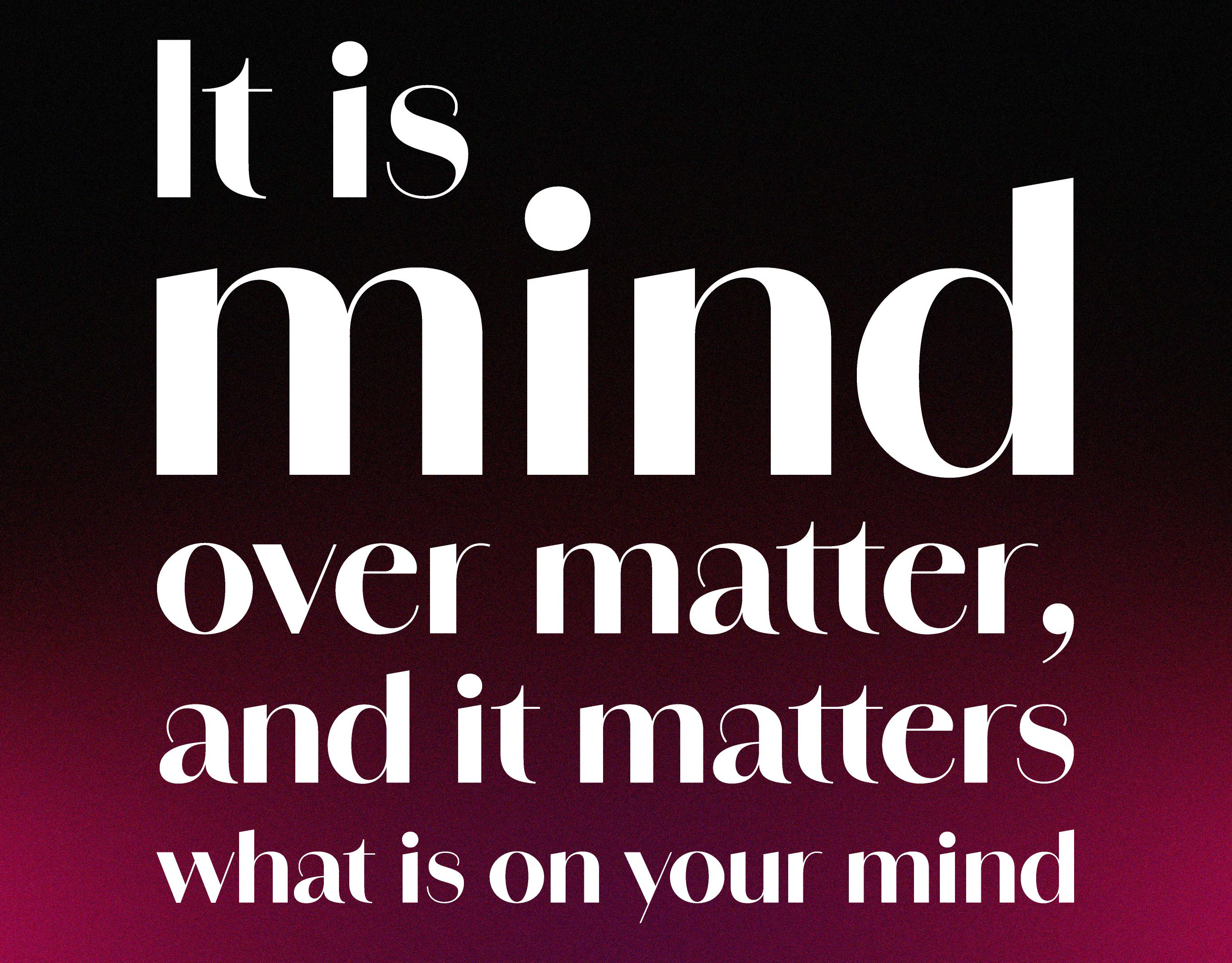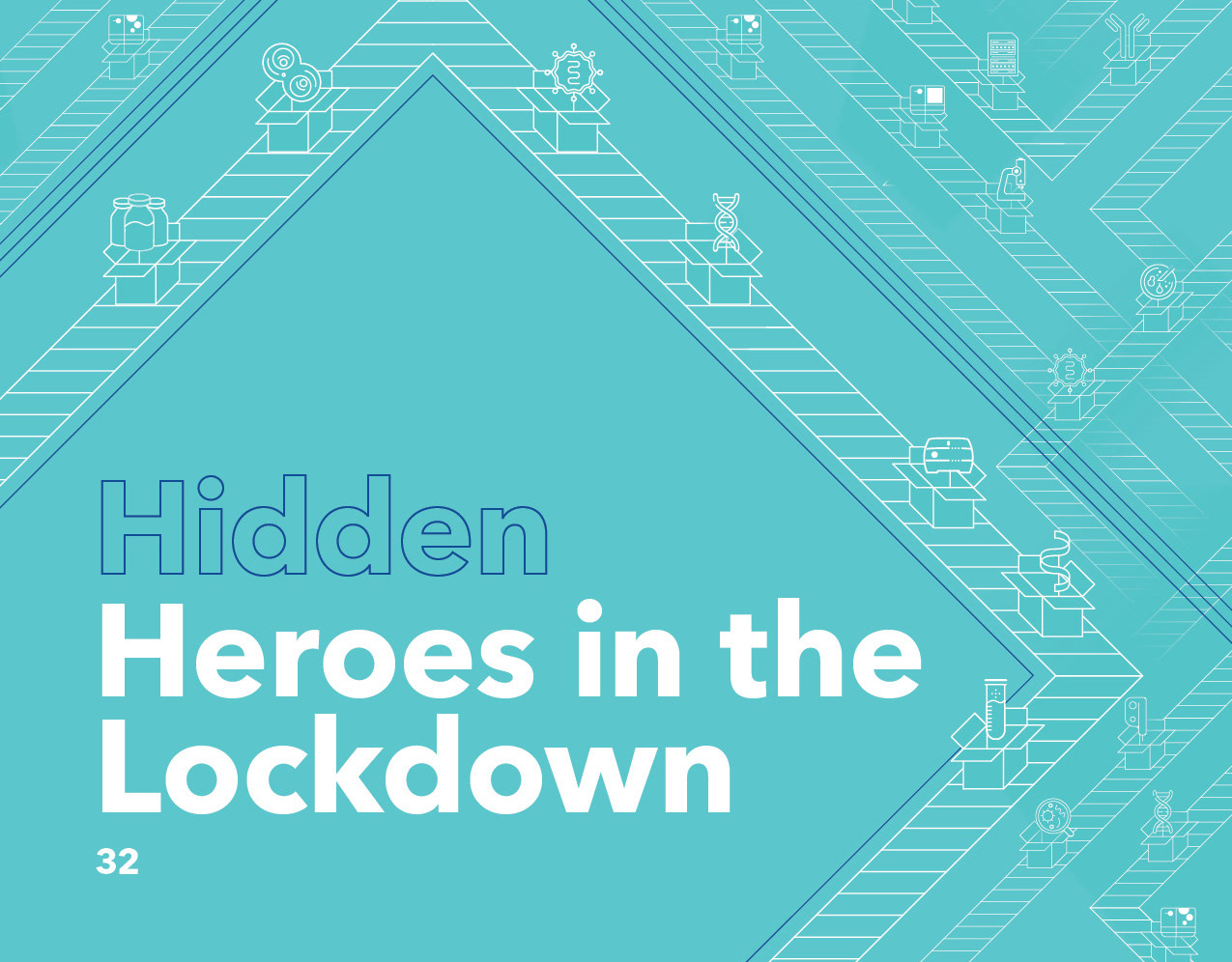“Stop Changing Yourself to Fit In"
– the Tall Poppy Syndrome.
Tall Poppy Syndrome refers to the social behaviour that people encounter when they experience success; often the response is to limit, play down or punish people for being successful.
Coming from my background, an Oxford kid living in a single parent household, my mother barely scraping by as she did her best to keep me and my sister fed, watered, and sheltered; working multiple jobs as she marched up and down a giant hill, multiple times in a day, and never once complained. It was a commendable effort and something I am grateful for, both in what was done then to keep us safe and for what it inspired me to do as I grew: I never want to scrape by again nor do I want to spend my life working a job I had no passion for.
Looking forward a few years, the feeling of determination was palpable, it often felt like a do or die situation – if I didn’t, the cycle would continue for another generation and my mother’s tireless efforts would be ill spent. This is why it is important to me to embrace every single crumb of opportunity, and to keep going regardless of failures as the alternative is not what I choose.
At school all I wanted to do was study, get the best grades I could so I had the best chances of building a better life. Back then, if you did something well in class and a teacher pointed it out, you bore the brunt of the daily abuse – this often happened to me and others, it was almost as if saying nothing and barely passing was acceptable, as long as none of the class was doing well, all was okay. Is this really the future we want to build for ourselves? - the thought echoed in my mind. I endured the constant vocalisations and jabs for years, to the point where I started to pull back from answering questions or deliberately made mistakes in tests to bring my grades down; when I saw my first D grade, that self inflicted pain hurt more than a punch in the gut. I knew I had to endure it to break the cycle, so I wavered between trying and holding back.
To me that behaviour was normal, the world seemed to be okay with the okay, and treat the exceptional as the exception.
Sadly the exceptional was in reality just people trying to better themselves.
College came, my enrolment introduced me to an entirely new world of possibilities. I could study the one thing I loved most at the time: Graphic Design. Everyone was doing the same, surely it was safe to test my skills and better myself? Sure enough the same thing happens, a class presentation of our first project, the teacher pulls out my work to present to the class as a good example – there the sniggers came and the constant comments after. Not again! So I pulled back once more.
Then one teacher saw me pulling back again, he was furious. He called me into a meeting and sat me down. He was quiet in his chair for a moment, then bellowed the line:
“Stop changing yourself to fit in, if you do, what is the ******* point of you?”
– I was shocked, partly at the volume coming out of such a usually quiet man, partly because of the large vein that appeared on his head, but also that I angered someone so much by doing something that was normal to me, it was what I was conditioned to do, to not stand out. He sat me down and talked me through my work, a little pep talk on how my actions now will affect what I will be doing in the future, and to work beyond public perception. From there I made the best work I could, hardly the best projects ever made at that college but a true representation of where I was at skill wise, in turn that told my teachers exactly what I needed to learn to be better and from there I grew.
The mindset bellowed by my teacher galvanised my determination, that teacher was another person who was there at another threshold in my life, I have always been grateful for his honesty.
Since being a designer I have endured the brunt of the tall poppy mindset that still persists today:
Truth: I want to learn to be better at what I do
Tall Poppy: You think you’re too good to do this work
Truth: I can see an issue with this project, I have some suggestions, what do you think about these?
Tall Poppy: You think you’re better than me
Truth: Do you need any help with this project? I am good on time with my own projects so I have scope.
Tall Poppy: You are trying to take my job
It is still a challenge today, leading with love should be a mindset that never falters (setting an example by learning over judging).
I’m not perfect, no one is – but the gaps we see are opportunities to improve. When we do improve, we should celebrate each other’s evolution. “Comparison is the thief of joy” said Theodore Roosevelt, it aptly summarises the centre of thought. We compare our lives with what others present, yet others rarely present all the hardships they suffer over the good they celebrate – evident on social media.
If you ever feel irritated when someone does well, it’s human don’t worry. But understand the context and where it comes from – maybe if it irritates you, it mirrors you, maybe it mirrors your wants.
Maybe as you read this article it may irritate you. Who is this nobody speaking as if he knows something I don't? Why should anyone like this have a voice? In reality, I am just someone who has no prior experience in writing articles that is trying something new as I work on my own skillset. If I worried about these interpretations, I would be stunted in my growth.
To me, when I see someone wipe the floor with me (skill wise), I simply ask questions. For one it shows interest to those with better skills than you, keeping you in mind for projects in the future so you may improve your skillset, and secondly it opens a channel for learning by seeing someone break down how they did what impressed you.
It is the humble question that is the antidote to the Tall Poppy mindset. Do the same for others, if you do well and they ask how, share your learnings! It is amazing how freeing it is.
Let the Poppies grow, and if you are thinking of pruning them, knowledge is the best gift we can give and receive (aside from chocolate).
Thanks for reading my write up, I have many thoughts that I am refining into short pieces. I have seen a lot in my first 14 or so years as a designer, and it is great to share it as when I was starting out, I knew no one who was able to impart this kind of knowledge.
Kieran Stanislaw Mace
Recommended read: 12 Rules for Life by Jordan Peterson, look at rule 4: Compare yourself to who you were yesterday, not to who someone else is today, and rule 9: Assume that the person you are listening to might know something you don't










